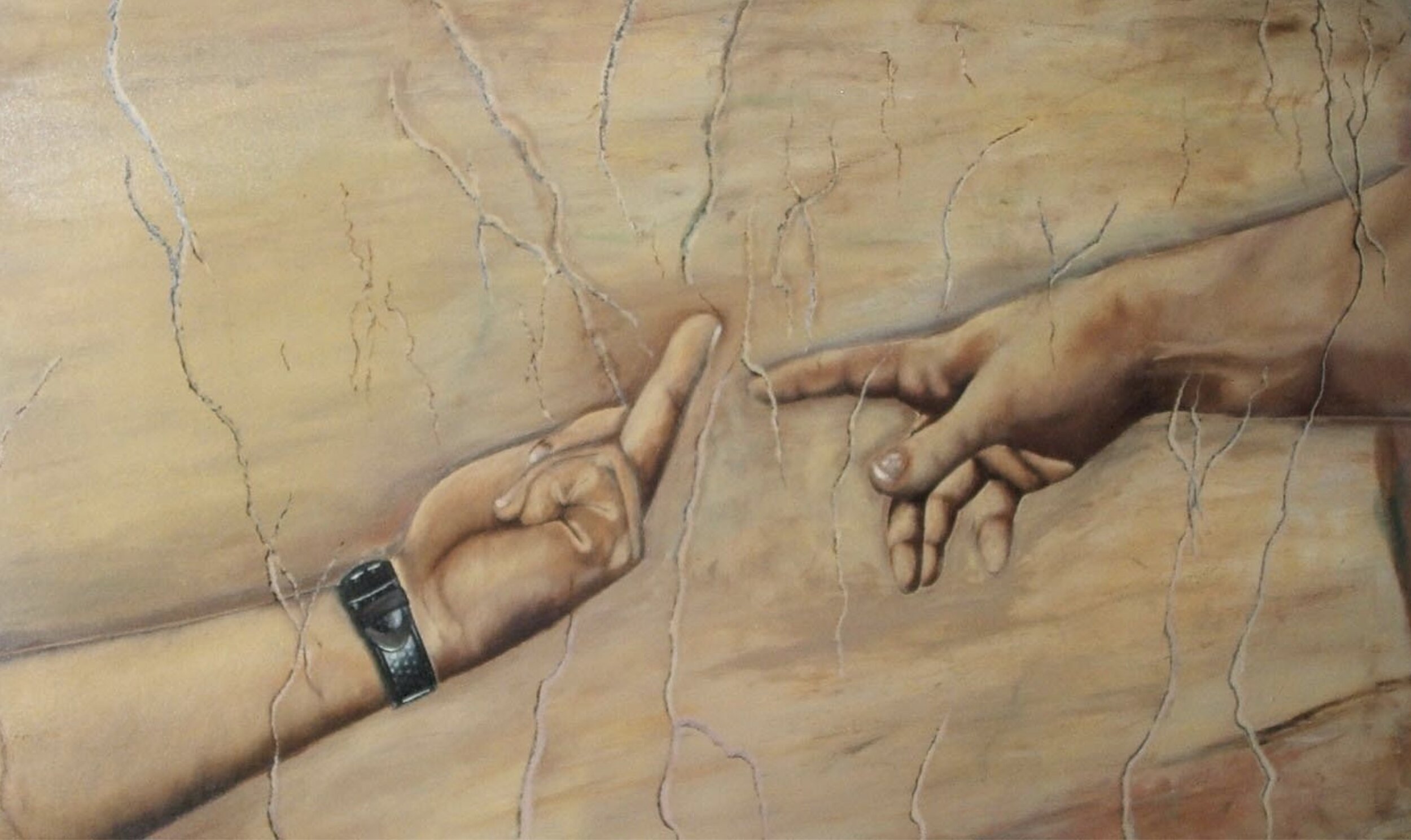For all that this pandemic has and will make humanity do, what it has achieved distinctly is this - it has rendered the planet spectacularly godless. I don’t think we have come to publicly admit that we are in the midst of an unprecedented wave of atheism. Places of worship have shut down, messengers of god are entirely out of business. Scientists, doctors, nurses are our everyday messiahs, doing what gods do had they existed- put themselves at risk to save humanity. It is the perfect time to contemplate not how God arrives (or leaves), but how profoundly godless our world is.
Like much else in life, godlessness came to me through a play. In my early 20’s, I voluntarily signed up for an undergraduate lecture on Waiting For Godot. It is an astounding play by Samuel Beckett; “a play in which nothing happens, twice”. The play’s landscape is barren, its universe is forsaken, an environment that eerily evokes the abandonment that pervades our cities under lockdown today. The lecture was hosted under an open sky, began at noon, and lasted till it became dark, quite dark. It was delivered by a professor who looked not unlike a god himself. He progressed from one page to another, reading dialogues, explaining words, playing the parts, pausing every now and then to check if we were keeping up. The lecture gathered a strange kind of sanctity as it proceeded. Everyone realised that it needed to press on uninterrupted, ironic as it may be, like a sermon. As I got drawn in I felt the ground on which we sat unguarded becoming thinner, gravity was giving up on us, abandoning its grip on our soles as if to become feeble and weightless like the page we were on.
The lecture lasted 7hrs, and left us with a strange fatigue, not unlike that of having run a marathon, only without sweat. In the play Godot never comes, but that evening godlessness did arrive at the end. I remember struggling for words, my mouth melting like flesh exposed to an incinerator, making lips indistinguishable, turning them inside, making it impossible to utter even a customary goodbye or thank you to the professor. I had grown up with a faint distrust of religion, but even so, I hadn’t expected that the final moment of evacuation, of becoming godless, would occur on a perfectly ordinary day sitting on humdrum grass, with not so much a word of warning, amidst a quiet modest middle spring. Journey back home that day felt longer than the lecture had lasted, perhaps because what I had eventually experienced was grief. An odd kind- grief without anchor, without an accompanying personal sentiment, adrift, but grief nonetheless. I woke up the following morning and latched onto my friend’s arm, who at the time was my roommate, and given to piety. I dragged him out in the open, and exclaimed, ‘God doesn’t exist. Oh my god, God doesn’t exist!’ My gasping squawky cries of relief baffled him. He said, ‘ok, ok.. ok hmmm’, and walked back indoors unimpressed. I wanted to express to him that I had had an intense and profound experience, that godlessness had left me feeling exalted, euphoric, devastated. I wanted to know if he feels equally overwhelmed when he experiences godliness. But he didn’t turn back. He wouldn’t hear any of it. And that was that.
As far back as 1772, Baron d'Holbach said that all children are born atheists; they have no idea of God. Is then the journey towards Godlessness through shedding, in some part, what was learnt in becoming adult? Is it a kind of forgetting? Once when an actor needed to prepare himself to play a character in Beckett’s play, he began by observing people suffering from dementia. Beckett’s characters keep ‘failing to remember’- where they are, how they got there. “Nothing to be done” is the opening line. Waiting For Godot is the perfect play to read 70 years after it was written, as we sit at home to save humanity by doing nothing. We have all become characters in Beckett’s godless universe.
If we go on to survive the pandemic (which we will), it will be owed in no small measure to the grit of a growing tribe of atheists who march on to deliver godlessness (in the form of a vaccine to fight covid-19 this time?). As the world moves forward, it will undoubtedly have more and more atheists. In his book ‘Letter to a Christian Nation’, Sam Harris wrote: “Atheism is a term that should not even exist… Atheism is nothing more than the noises reasonable people make in the presence of unjustified religious beliefs.”
In classic subcontinental style, we could look at the whole thing the other way around instead. It is God who experiences ‘humanlessness’; people have forsaken him/her because people are simply too busy living. Kiran Nagarkar best captures this in an anecdote in his book The Arsonist -
“If you had to choose between a woman you loved and God, who would you choose.”
The Weaver said, ”The woman.”
And the mullah asked him, “If you had to choose between a song and God, what would you pick?”
The Weaver said, “The song.”
And the priest asked him, “A beautiful sunset or God?”
The Weaver said, “The sunset.”
And they asked him how he could blaspheme so.
The Weaver said, “God has eternity on his side, he can always wait. Will the woman, the song, or the sunset wait for me?”
To be God is to be without people for eternity. To be human is to be without God for eternity. Either way, we are on our own.
